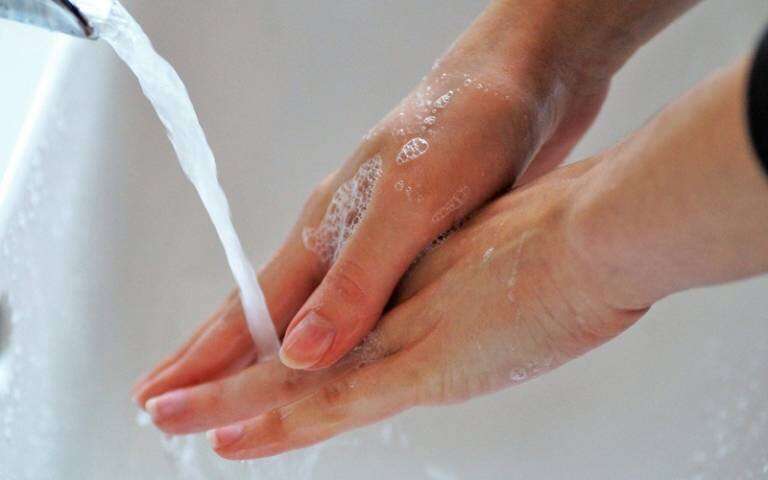Moderate frequency handwashing six to ten times a day is linked to a lower risk of seasonal coronavirus infection, according to a new UCL study.
The research, published in Wellcome Open Research and awaiting peer review, is the first empirical evidence that regular handwashing can reduce personal risk of acquiring seasonal coronavirus infection. It draws on data from three successive winter cohorts (2006 to 2009) of the England-wide Flu Watch study.
Sarah Beale (UCL Institute of Health Informatics), Ph.D. researcher and first author on the study, said: "Given that COVID-19 appears to demonstrate similar transmission mechanisms to seasonal coronaviruses, these findings support clear public health messaging around the protective effects of handwashing during the pandemic."
"It's important to highlight that frequency of handwashing is only one aspect of hand hygiene. We also know that both longer duration of handwashing and the context of handwashing e.g. upon returning home or before eating—have been associated with lower overall risk of influenza or influenza-like-illness.
"Good hand hygiene should be practiced at all times regardless of whether you show symptoms or not. This will help protect yourself and prevent unwittingly spreading the virus to others around you."
For this study, 1,633 participants provided baseline estimates of hand hygiene behavior and coronavirus infections were identified from nasal swabs. The majority of participants (almost 80%) were adults over sixteen years of age.
To assess overall handwashing frequency participants were asked the start of each season to "Estimate how many times you washed your hands yesterday." Frequency of daily handwashing was subsequently categorized as low (≤5 times daily), moderate (6-10 times daily), or high (>10 times daily) guided by literature around influenza-like illness in Western community settings.
Moderate-frequency handwashing was associated with significantly reduced overall risk of contracting coronavirus (36% reduction in the risk of infection compared to those who washed their hands 0-5 times per day). For higher intensity handwashing there was no significant dose-response effect.
The analysis was adjusted for age and healthcare worker status due to their relationship both with hygiene practices and with risk of contracting coronavirus infections.
Ellen Fragaszy, (UCL Institute of Health Informatics and the London School of Hygiene and Tropical Medicine), Senior Research Fellow and last author on the study, concluded: "Something as simple as washing our hands regularly can help us to keep the infection rate low and reduce transmissions."
More information: Sarah Beale et al. Hand Hygiene Practices and the Risk of Human Coronavirus Infections in a UK Community Cohort, Wellcome Open Research (2020). DOI: 10.12688/wellcomeopenres.15796.1
Provided by University College London























